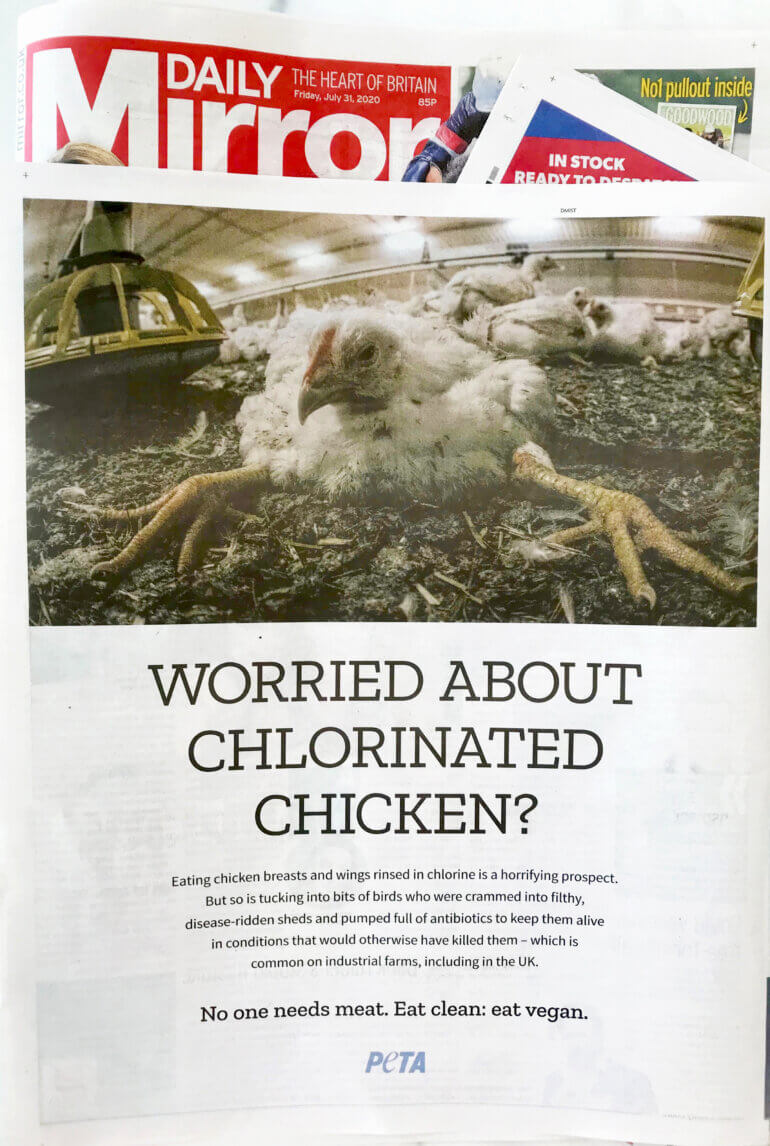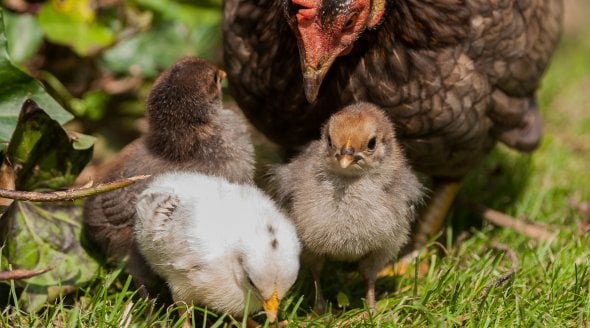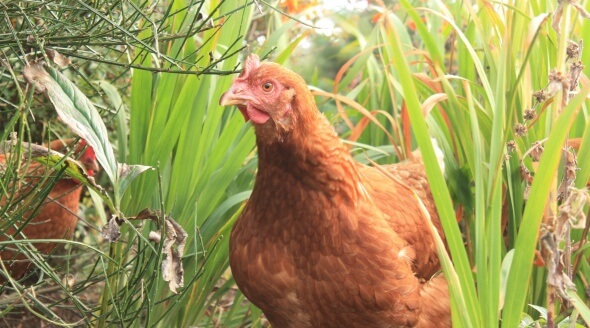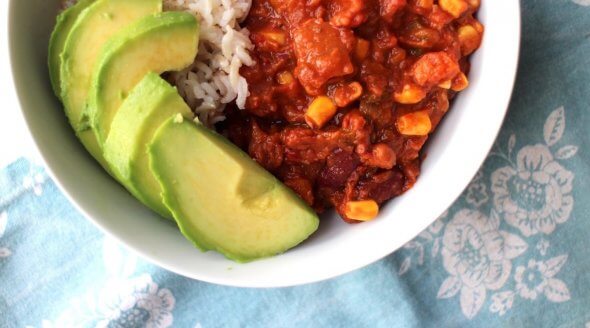Should We Be Worried About Eating Chlorinated Chicken?
As more and more stores are pledging never to sell chlorinated chicken if the UK makes a trade deal with the US following Brexit, PETA has placed the ad below in the Daily Mirror, urging concerned consumers and businesses to think twice about eating chickens raised on UK farms, too:
What Is Chlorinated Chicken?
In the US, chicken corpses are routinely washed in chemicals to remove potentially dangerous bacteria. As long as the UK was subject to EU regulations, washing chicken flesh in chlorine or importing chlorinated chicken was banned. Of course, the idea of eating chicken’s breasts and wings rinsed in chlorine is horrifying, but is any chicken flesh a healthy option?
Are Chickens Raised on UK Farms a Better Choice?
Probably not for you – and certainly not for the chickens.
The UK has nearly 800 “mega-farms”, which house at least 40,000 birds in close confinement, as well as industrial-scale intensive farms scattered across the countryside.
These animals, who experience joy, friendship, and love – individuals who dream and enjoy playing – are tightly crammed into cages, barren sheds, or concrete barns, with virtually no access to the outdoors or opportunity for mental stimulation. Many will never see sunlight.
Chickens raised for their flesh each live on a patch of floor no larger than an A4 piece of paper. Bred to grow unnaturally large, they often suffer from crippling leg deformities and heart failure. Confined to huge windowless sheds with no dust to bathe in, branches to perch on, or grass underfoot, it’s virtually impossible for these inquisitive, social animals to engage in any natural behaviour.
What About Antibiotic Resistance?
To make them grow quickly and keep them alive in disease-ridden conditions that could otherwise kill them, animals on factory farms are routinely fed antibiotics. This causes a number of problems, the most worrying being the development of bacteria resistant to the antibiotics that we rely on to fight infections. According to the OECD, “agriculture accounts for over 75% of annual antimicrobial consumption in the EU and the US”.
We’re playing a dangerous game. At our current rate, experts believe that by 2050, more people will die of antibiotic-resistant diseases than currently die of cancer.
Can We Contract Infections From Eating Chicken Flesh?
Salmonella and E coli are common on intensive farms. Chickens who grow unnaturally large in just 42 days experience a high level of stress that makes them more susceptible to campylobacter infection, too, which is easily passed to humans in their flesh and is “the most common bacterial cause of human gastroenteritis in the world”, according to the World Health Organization. Long-distance transportation of animals to slaughter further increases the risk of infection.
Given the huge population of animals living on factory farms in the UK and around the world, we’re leaving ourselves vulnerable to further catastrophic disease outbreaks and pandemics.
Is Buying ‘High-Welfare’ Meat a Safe Option?
“High-welfare” meat is a myth. Such labels are designed to reassure customers, not to protect the hundreds of thousands of animals forced to spend their short, miserable lives in squalid conditions. The following footage was taken on two UK farms that supplied Marks & Spencer, which claims to be “committed to the highest standards of animal welfare”:
Be Kind – Eat Clean – Go Vegan
If you’re worried about chlorinated chicken, you should also be worried about the health risks associated with eating meat of any kind. The healthiest and kindest choice is to go vegan. It’s simple: take our 30-day vegan pledge and we’ll guide you through the transition to a new compassionate lifestyle. Why not start by giving vegan fried chicken a try? (Warning: It’s highly addictive!)







